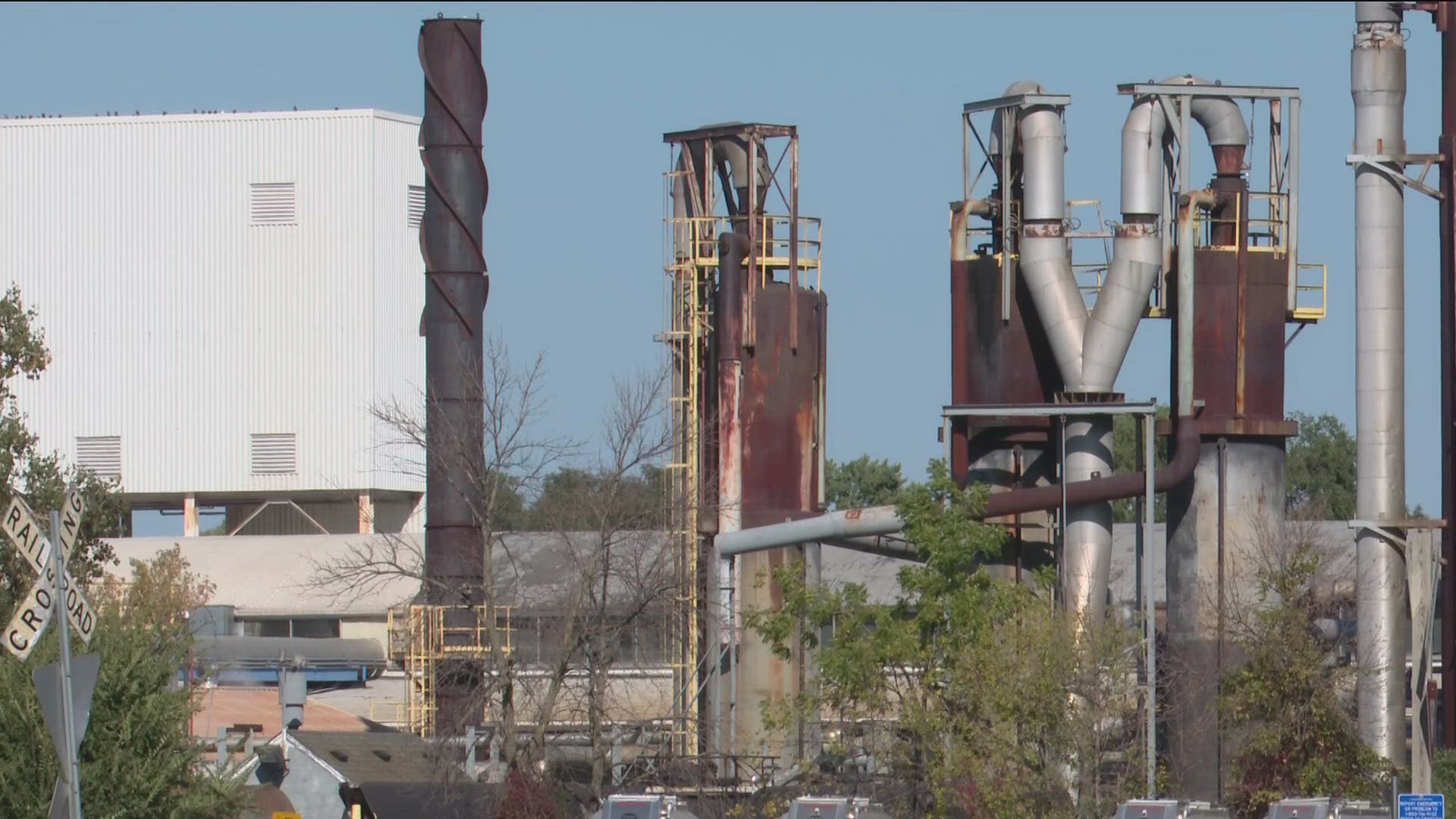MINNEAPOLIS — Mayor Jacob Frey Wednesday vetoed a plan by the Minneapolis City Council to charge pollution control fees to larger companies based on the amount of carbon dioxide they emit.
Mayor Frey said he agrees with the concept of attaching fees to carbon emissions, but that the City Council ignored the legal advice of the city's staff attorneys when they adopted the fee program at their Oct. 2 meeting.
"I vetoed the action the council brought forward, not because I disagree with the underlying substance. Of course, I agree with it. I authored attaching fees to pollution while on the council seven years ago," Frey told KARE.
"But if the council actually cares about getting the job done, do it right. In this case, they completely ignored the advice of our attorneys. They said they can’t do the thing they’re trying to do."
Minneapolis already has a pollution fee system in place, known as the Pollution Control Annual Registration or PCAR. The fees go into the city's Green Cost Share program that helps pay the costs companies incur bringing down their emissions.
The current PCAR system covers emissions of other air pollutants, including volatile organic compounds, heavy particulates, and sulfur oxides, nitrous oxides, lead, and carbon monoxide. Companies are required to report their emissions levels to the Minnesota Pollution Control Agency, which, in turn, charges fees of $100 per ton.
The City Council Oct. 2 voted to add carbon dioxide to the list. The resolution seeks to impose a $452 per ton fee for carbon dioxide.
"This would home in on 36 facilities that already have air emissions permits but don’t contribute to recovering costs for mitigating carbon dioxide equivalents," Katie Cashman, who chairs the City Council's Climate and Infrastructure Committee, told reporters Wednesday. "Carbon dioxide emissions were not previously included in the PCAR program, which is hard to believe given carbon dioxide is the most well-known and most harmful greenhouse gas pollutant."
Cashman and others spoke at a press conference held outside the Owens Corning roofing plant in north Minneapolis just hours before Frey issued his veto. Council Member Robin Wonsley said the roofing plant will emit 3,550 tons of greenhouse gases in 2025, which would result in PCAR fees of about $96,000 for one year.
"These fees will pay for a new city staff position who will conduct site visits to each of the 36 emitters, analyze ways to reduce emissions as well as help the facilities apply for city and state programs to retrofit their facilities to ultimately lower emissions," Wonsley explained.
While the council's plan applies to the "top 36 carbon dioxide emitters," the PCAR program doesn't include major utilities that have some of the highest carbon dioxide emissions. Those companies are regulated instead through the city's franchise fee system.
When Frey vetoed the resolution, he cited advice from the legal staff that the council's move would violate state law.
"The council members who authored this and supported this simply didn't do their homework," Frey remarked. "The council -- they are not legal experts. We should be trusting people who are, like our city attorney."
Frey said the city can't impose fees until after the city staff completes a study of how much the program will cost. He said that's essential because, according to state law, the total fees collected can't exceed the cost of running the program.
In other words, cities can't use pollution fees as revenue raisers to supplement other parts of the budget.
Wonsley authored a legislative directive last year instructing the city staff to develop a plan for placing carbon dioxide into the city's pollution control system. She said the staff stalled, seeking more study.
She told reporters Wednesday that the Legislative Department's Policy and Research Division came up with the number of $450 per ton, plus the minimum staffing requirement of one FTE at a cost of $180,000 per year.
"The mayor still hasn't added this staff member to his 2025 budget or agreed to impose the fees," she said.
While the council's plan applies to the top 36 carbon dioxide emitters, the PCAR program doesn't include major utilities that have some of the highest carbon dioxide emissions. Those companies are regulated instead through the city's franchise fee system.
Now that Mayor Frey has vetoed the resolution, the city council has the option to override that veto. It would take nine of 13 members to override Frey.
He said if that happens the companies being hit with the fees will most likely sue the city and win.

